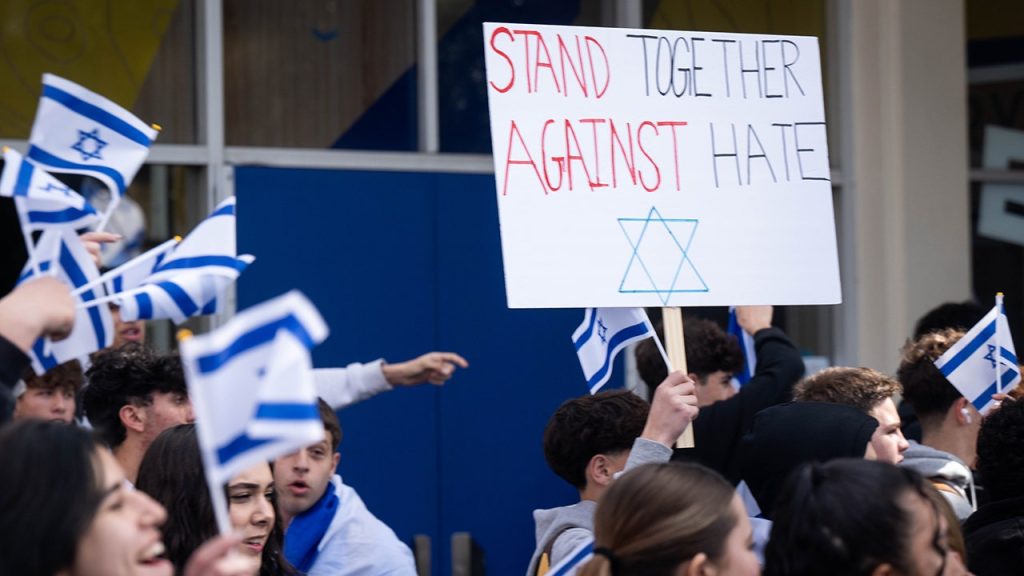The year following the Hamas terrorist attack on Israel in October 2023 witnessed a dramatic surge in antisemitism globally, marking a turning point in the perceived security of Jewish communities. Synagogues, schools, and community centers, once considered safe havens, became targets of threats, vandalism, and even physical violence. This newfound vulnerability shattered the sense of belonging for many Jewish individuals, transforming their homes into places of fear and uncertainty. The pervasive nature of this “rolling antisemitism” became normalized, viewed as a problem for the Jewish community to bear rather than a societal ill requiring collective condemnation and action. This shift was jarring for many, particularly given the previous sense of solidarity with other groups in fighting for their rights, now replaced by a sense of betrayal and isolation.
The Anti-Defamation League documented a staggering increase in antisemitic incidents, exceeding 10,000 between October 2023 and October 2024, a threefold increase compared to the previous year. These incidents encompassed harassment, physical assaults, and vandalism, with a significant portion occurring at anti-Israel rallies and Jewish institutions. The rhetoric emanating from certain political figures and even within the United Nations contributed to the escalation of this hatred. The Chicago City Council’s resolution calling for a ceasefire in Gaza without demanding Hamas disarmament, and UN Special Rapporteur Francesca Albanese’s inflammatory statements questioning Israel’s right to exist and justifying the Hamas attack, exemplified this troubling trend. These actions, coupled with the relative inaction against them, fueled a climate of hostility and emboldened antisemitic actors.
Anti-Israel sentiments festered on university campuses, manifesting as encampments that often excluded Jewish students from their own spaces. The presence of Hamas flags at these protests and the targeting of individuals who opposed the movement further normalized the acceptance of extremist ideologies within academic settings. This atmosphere of intolerance extended beyond campuses, spilling into public spaces where the American flag was replaced with the Palestinian flag and monuments were defaced with pro-Hamas graffiti. The symbolic nature of these acts underscored the growing boldness of anti-Israel and antisemitic actors in expressing their hatred openly and aggressively.
The threat extended beyond symbolic acts, escalating to physical violence and planned attacks. A Mauritanian national who illegally entered the US targeted a Jewish worshipper in Chicago, highlighting the real danger posed by this rising tide of antisemitism. The delayed official recognition of the attack as a hate crime further exacerbated concerns within the Jewish community. Similarly, an ISIS-inspired plot against the Jewish community in Canada and the US, though thwarted, underscored the severity of the threat and the potential for further violence. These incidents exemplified the global reach of antisemitism and the need for heightened security measures.
Legal experts and human rights advocates attribute the surge in antisemitism to a confluence of factors, including political expediency and the failure of leadership to address the issue adequately. Critics argue that some political leaders have prioritized political alliances over the safety and well-being of Jewish communities, downplaying antisemitic incidents and avoiding prosecuting them as hate crimes. This perceived lack of action has created a sense of impunity for perpetrators and further marginalized the Jewish community. The failure to acknowledge and confront antisemitism within certain political movements has also contributed to its normalization and spread.
Globally, the situation is equally concerning, with Europe experiencing a dramatic rise in antisemitic incidents, leading to increased fear and self-censorship among Jewish communities. Countries like Sweden and France have seen alarming increases in antisemitic acts, prompting many Jews to conceal their religious identity and even consider emigration. The closure of Israel’s embassy in Ireland due to the country’s perceived anti-Israel stance further highlights the strained diplomatic relations resulting from this global rise in antisemitism. The UK, too, has witnessed a surge in antisemitic incidents, prompting concerns about the safety and security of its Jewish community. Attacks on Jewish school children and teenagers, coupled with the vandalization of Jewish property, paint a grim picture of the escalating hatred. Reports of horrific incidents, including the rape of a Jewish girl in France and the death of a rabbi in the UAE, further underscore the vulnerability of Jewish individuals around the world. Arson attacks on synagogues, shootings at Jewish schools, and organized “Jew hunts” highlight the increasing intensity and brutality of these acts. Travel advisories issued by organizations like the Simon Wiesenthal Center reflect the growing concern for the safety of Jewish travelers in various parts of the world.


